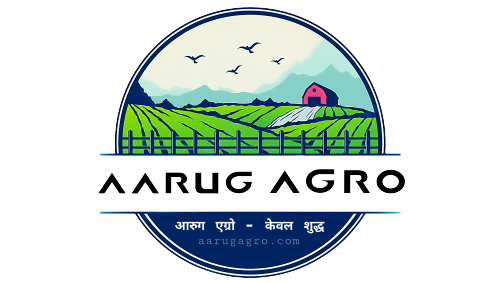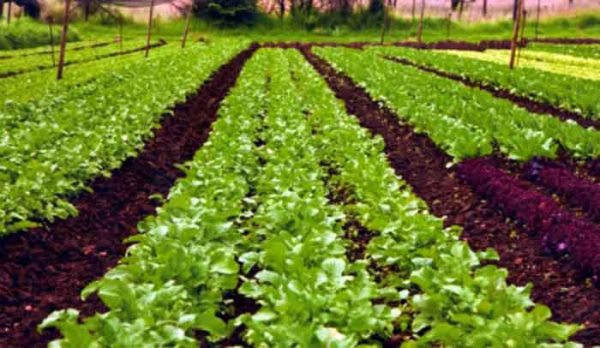Components of organic farming: Organic farming is guided by specific goals, principles, and components that aim to promote sustainable agriculture and minimize negative environmental impacts. Let’s explore each of these aspects:
Goals of Organic Farming:
- Environmental Sustainability: Organic farming aims to minimize the negative impact on the environment by promoting practices that conserve resources, protect biodiversity, and reduce pollution.
- Health and Safety: Organic farming prioritizes the production of safe and nutritious food by avoiding the use of synthetic chemicals, genetically modified organisms (GMOs), and other potentially harmful substances.
- Soil Fertility and Preservation: Organic farming seeks to build and maintain healthy soil by focusing on soil conservation, organic matter enrichment, and promoting beneficial soil organisms.
- Animal Welfare: Organic farming places importance on the ethical treatment and well-being of animals raised for food, ensuring they have access to open spaces, exercise, and appropriate diets.
Principles of Organic Farming:
- Principle of Health: Organic farming aims to promote the health of plants, animals, and humans by emphasizing natural and sustainable practices while avoiding the use of synthetic chemicals.
- Principle of Ecology: Organic farming recognizes the importance of ecological systems and seeks to work in harmony with nature, promoting biodiversity, ecological balance, and the preservation of natural resources.
- Principle of Fairness: Organic farming supports fair relationships and partnerships among all participants in the organic agricultural system, including farmers, workers, consumers, and the wider community.
Components of Organic Farming (as mentioned earlier):
- Soil Management
- Crop Diversity
- Pest and Disease Management
- Weed Management
- Nutrient Management
- Animal Welfare
- Prohibition of Synthetic Chemicals
- Certification and Standards
These components work together to achieve the goals and uphold the principles of organic farming. By adopting these practices, organic farmers strive to create a sustainable and regenerative agricultural system that protects the environment, supports healthy ecosystems, and produces safe and nutritious food.
s and regulations set by certifying bodies. Farms and products must meet these standards to be labeled and certified as organic, ensuring transparency and consumer confidence.
These components collectively contribute to the principles of organic farming, which include promoting ecological balance, conserving biodiversity, minimizing environmental impact, and sustaining the health of soil, plants, animals, and humans involved in the agricultural system.
Read More: What is Natural Farming? Differences Between Organic And Natural Farming
Organic farming is a holistic approach to agriculture that focuses on sustainable and environmentally friendly practices. It aims to produce food while minimizing the use of synthetic chemicals and promoting the health of ecosystems, soil, and organisms. The components of organic farming include:
- Soil Management: Organic farmers prioritize the health and fertility of the soil. They use techniques such as crop rotation, cover cropping, and composting to enhance soil structure, increase organic matter content, and improve nutrient availability.
- Crop Diversity: Organic farming encourages the cultivation of a variety of crops. Crop rotation, intercropping, and mixed cropping are common practices used to enhance biodiversity and minimize the risk of pests and diseases.
- Pest and Disease Management: Organic farmers employ preventive strategies and biological control methods to manage pests and diseases. This may involve using beneficial insects, birds, or other organisms to control pests, as well as utilizing trap crops, physical barriers, and cultural practices to reduce pest pressure.
- Weed Management: Organic farmers employ various strategies to manage weeds without relying heavily on synthetic herbicides. These strategies include manual weeding, mulching, cover cropping, and the use of flame weeding or mechanical tools.
- Nutrient Management: Organic farming relies on natural sources of nutrients to support plant growth. This includes the use of compost, animal manure, green manure, and other organic amendments to improve soil fertility and provide essential nutrients to crops.
- Animal Welfare: Organic farming emphasizes the ethical treatment of animals. Livestock raised on organic farms are provided with access to outdoor areas, exercise, and a diet that meets their natural needs. Antibiotics and growth hormones are prohibited in organic animal production.
- Prohibition of Synthetic Chemicals: Organic farming strictly limits the use of synthetic fertilizers, pesticides, herbicides, and genetically modified organisms (GMOs). Instead, natural and organic alternatives are used to manage pests, diseases, and fertility.
- Certification and Standards: Organic farming follows specific standards and regulations set by certifying bodies. Farms and products must meet these standards to be labeled and certified as organic, ensuring transparency and consumer confidence.
These components collectively contribute to the principles of organic farming, which include promoting ecological balance, conserving biodiversity, minimizing environmental impact, and sustaining the health of soil, plants, animals, and humans involved in the agricultural system.
Read More: Types Of Organic Farming In India And How To Begin Using Sustainable Farming Methods


